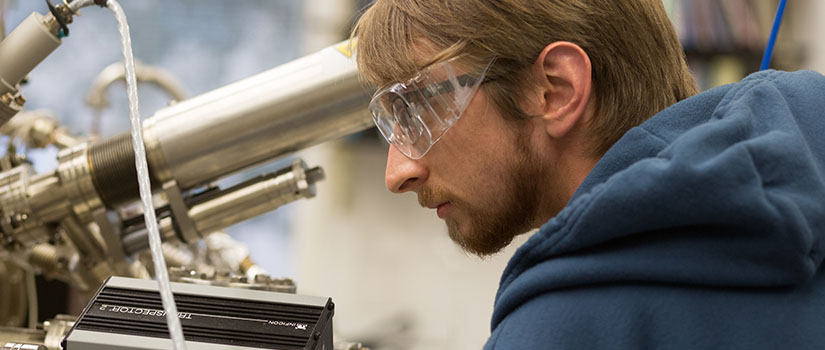The Department of Chemistry and Biochemistry is a state and national leader in research and teaching.
The graduate program at our department gives you the research skills you need in the multidisciplinary environment that 21st century science requires. If you are interested in applying to our graduate program, the preliminary application process offers details and valuable information.
When you join the department's doctoral program, you also become an integral part of The Graduate School at the University of South Carolina.
Admission Requirements
Given the diverse background of many of our faculty, applications from students that have received baccalaureate from chemistry, as well as allied programs in the biological and molecular sciences are also strongly encouraged. All components, including a final transcript acknowledging the degree, are required for admission to the graduate program. Additional course work in inorganic and biological chemistry may be helpful.
Overview of Program
The Department of Chemistry and Biochemistry offers a graduate program leading to the Doctor of Philosophy with concentrations of analytical, inorganic, organic and physical chemistry, and biochemistry. The course and research requirements are flexible and can be tailored to the background and interests of each student. Multidisciplinary areas such as environmental science, materials, polymer, molecular biology, computational and others are well-represented in the department. Collaborative research between research groups is encouraged.
In addition to developing your own research skills, you will participate in a worldwide scientific community advancing the frontiers of knowledge. You will publish papers on your work in major scientific journals. You will attend national and international conferences to present your work with the encouragement and support of the department. Our active seminar program brings in some of the best scientists from around the world to discuss their work with all members of the department.
You will learn a great deal about research from the thesis advisor you choose soon after joining the department, and you will also learn from advanced graduate students, postdocs and visiting scientists working with you in the same research group. These groups, typically consisting of three to ten researchers working on closely related projects, will expose you to a wide range of scientists ready to share their skills and experience.
Communication skills are also an important part of your development. You will give presentations to your research group and to your division of the department. Every spring, the department holds a poster competition for advanced students, with the finalist presenting a departmental seminar and entering a university-wide competition. Our program will give you the experience to approach presentations outside the university with confidence.
A breakdown [pdf] of a standard Ph.D. course of study
Graduate-level courses offered at the university.
